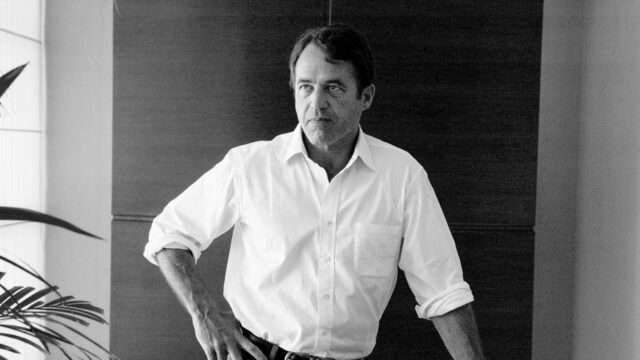In the winter of 2012, at a crowded Vanity Fair party at the Waverly Inn, I scanned the bar for friendly faces, and, thank God, there was Aimée Bell, an editor who’s always generous with jokes and smiles. She stood to one side of the fireplace, next to a quiet man in a black turtleneck. When I approached, and she introduced him, a byline came to life: William Langewiesche.
Since 1991, first at The Atlantic, then as VF’s international correspondent, William Langewiesche had been like a diplomat-without-portfolio who roved the world, writing about practically anything he wanted to write about, and living bigger than life—as a pilot, war correspondent, and unreconstructed yet enlightened tough guy. He had been one of my favorite writers since 2002, when The Atlantic published “American Ground: Unbuilding the World Trade Center,” a landmark of nonfiction narrative and paragon of style, built on compelling, precise technical description and analysis. This was what magazine writers like me wanted to do when we grew up.
By 2012, I had been a contributing editor at VF for a few years, and I’d known that, sooner or later, William and I would cross paths. We shared a peerless editor in Cullen Murphy, who sometimes mentioned his work with William. Like when I was writing slowly, and Cullen said, Just get it down without looking at your notes. Sketch it quickly, simply, as if you were writing a children’s book. And skip around: work on the beginning and the ending, then fill in bits of the middle. This is something William could never do. He has to write from beginning to end. Straight through. As if he were boring a tunnel through the base of a mountain.
So now here I was, meeting William at the Waverly. I have no memory of the exact words we said that night, but I can still see his expression—chin down, eyes wide, brow hovering—and I remember the shock it gave me: an overwhelming impression of something I had not expected of the tough guy with the preternatural gift for describing the way things work. What I saw in William’s eyes I can only call tenderness: wary yet welcoming, fascinated, absolutely open to the people and circumstances around him.
In time, I would come to think it was this quality of tenderness—along with his ability to intuitively protect himself even from awareness of it when he had to—that made William so tough, and so supremely able to register and explain intricate mechanics. Tough enough to fly airplanes through the most volatile storms, his favorite skies to fly in. Tough enough to get himself out of the most abject troubles that he’d gotten himself into. (When a friend asked, “How many times were you arrested?” William answered, “In which country?”) Tough enough to charge into dangerous places that others ran from, like the smoldering ruins of Ground Zero. And tough enough, always, to bring home the story.
When we met, William was 56 years old, and I was 41. Not the easiest stages of life in which to make new friends. Yet by a stroke of luck, we happened to live one block from each other; and because proximity made it easy for us to hang out, we started hanging out a lot. We talked through stories as they developed, looked at or listened to each other’s drafts, tended each other’s bruises as the magazine business evolved, stood with each other at our respective weddings, welcomed two of his children into the world and enjoyed all four of them growing into ever more marvelous good company—and for 13 years of friendship, consistently made each other laugh like crazy.
Even his humor was brave. Insanely, unprintably brave, most of the time. Squeamish about nothing. But this, too, I think, expressed the tenderness that made him a great reporter. He was willing to say anything because he was able to see everything. And that’s enough about that—because in this remembrance of our friendship, I have to respect, and emulate, my friend’s preference always to be sparing with his own presence on the page.
The morning after William died, when editors at VF asked me to write about him, I bawled—ugly, wet-faced, shaking—because the fresh hurt of him being gone felt like being ripped in half.
But I started writing, and pretty soon that started to feel like being ripped in half in a good way. In something like the William Langewiesche way. In the way where you see everything and feel everything, but you cannot, will not, allow yourself to be shattered by it, because people depend on you to tell this story. To land this plane.
William said: No one will ever care how hard you worked, how long it took, how poor you were, what anybody did to you. The only thing that matters, the only thing that will ever matter, is the quality of what you write.
And William often said, in hardest times: Be of good cheer.
And where is he now? Where does the swashbuckling, globe-trotting, tough guy reporter go when he dies? I want to know, I cannot know, and I have to picture him at last letting it all in. No need to protect himself from anything. Eyes and heart wide open. At altitude and speed beyond his best dreams. And everywhere, all at once: end, middle, beginning.












